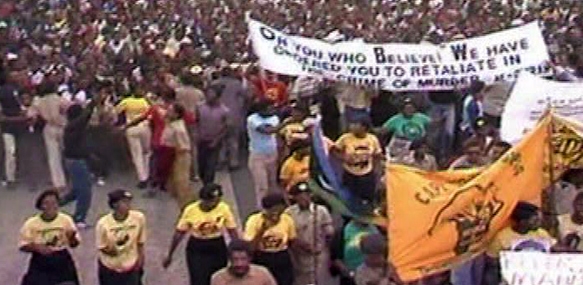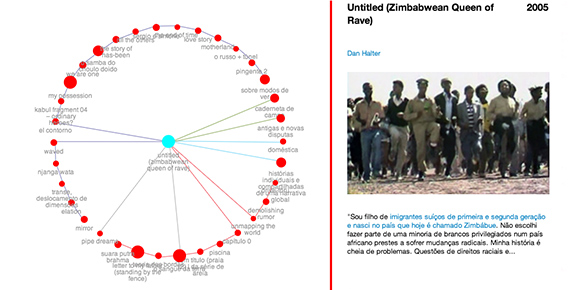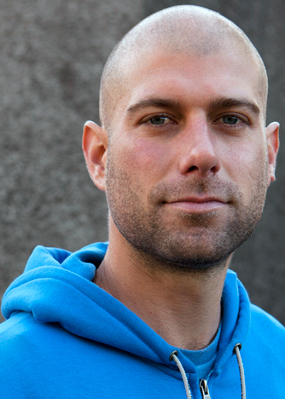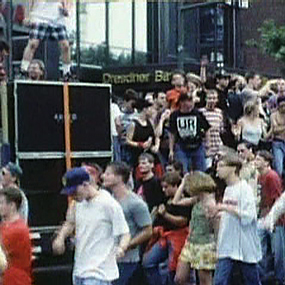Dan Halter
Dan Halter was born in Harare, the capital of Zimbabwe, a small African country that ceased to be a British colony only in 1980. In 2005, he witnessed his parents being forced into exile – as president Robert Mugabe’s agrarian reform entered a new phase. White landowners were systematically driven away by government and population alike, in a bid to upset the ethnical balance of land ownership. Halter has been living in South Africa ever since.
“I did not choose to be part of a privileged white minority in an African country on the verge of radical change. Human rights issues and advantages over the local majority did not and do not have a solution, and pose an ethnic and moral challenge. I have been dealing with this all my life. But it provides me with all the elements to an interesting story I feel compelled to tell, no matter if my voice will be deemed legitimate or not,” he says in a statement to PLATFORM:VB. In an interview to Ralph Borland, available in FF>>Dossier 042, Halter mentions the important step that must be taken the revolutionaries who fought repression and, now in power, are corrupted too: “it is understandable that corruption and crime have surfaced, since they are taking back what they had been denied for a long time.” Though physically devastated, Dan Halter goes on questioning the politics of postcolonial Zimbabwe through his work.
The year of 1991 provides the background to Untitled (Zimbabwean Queen of Rave). The video alternates between common footage from rave parties in European countries and anti-Apartheid demonstrations in South Africa. These contemporary, diametrically opposed realities are amalgamated by the dance tune “Everybody’s Free (To Feel Good),” a hit by the Zimbabwean singer Rozalla. The parallels are there: massive concentrations of people brought together by a shared interest, permanent motion, passions running high, crowded streets. In addition to designating open-air electronic music parties, the English word rave may be understood as “to move or go forth violently.” The differences, on the other hand, are blatant: white youths have the privilege of gathering to celebrate, while blacks of all ages must come together to claim the most basic human rights. Dan Halter’s piece denounces that some are freer than others.
Untitled (Zimbabwean Queen of Rave) resembles a music video, or, as noted by the independent curator João Laia in a text published in the book Unerasable Memories, its fast-paced editing “is reminiscent of 80s British scratch videos, which ushered in the appropriation of different archives, combined to the rhythm of popular music.” The simple superimposition of scenes, typically low-tech, was purposely employed by the artist, to whom the need for “bricolage” in cultural projects from the Geopolitical South arose from the region’s poverty, a legacy of exploration. He nonetheless considers “do-it-yourself” to be an empowering tool.
His recent work addresses xenophobia towards Zimbabwean refugees in South Africa. The video Beitbridge Moonwalk (2010), which has been a part of the Videobrasil Collection since the 17th edition of the Festival, was inspired by an account from an immigrant who illegally crossed the borders between those two countries. The growing recognition of Dan Halter’s oeuvre has earned him stints at the 10th Havana Biennale (Cuba), the 3rd Guangzhou Triennial (China), the 9th African Contemporary Art Biennial (Dakar, Senegal) and an exhibition at the Smithsonian National Museum (Washington, USA).
Learn more about the artist:




